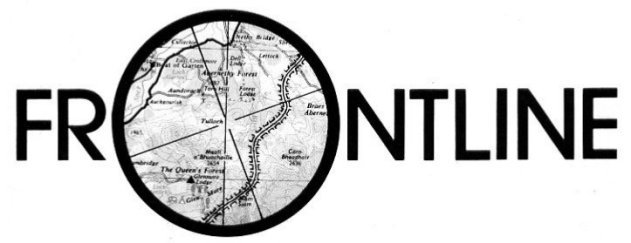

As regular readers of CRASH will be aware, Angus Ryall of Games Workshop has been our strategy reviewer for a goodly chunk of time. However, Angus is now interested in developing other areas of his life and is relinquishing his regular column. This doesn’t mean that Angus is never going to write for us again... expect to see the occasional vituperative contribution from Angus between the CRASH covers from time to time.
Sean Masterson will be occupying the Frontline from now on — two days after he started work in CRASH Towers, we found he was a keen strategist, and so we gave him a desk, and told him he was editor of the Frontline column... over to you, Sean.
THE PURPOSE of this column, as I see it, is not just to review wargames, although they are almost bound to take up the largest proportion of space, but to have a look at strategy software in general.
There is something in the subtlety of a good strategy game which appeals to many people more than arcade or adventure games. Arcade games require great manual dexterity. Adventures require a good deal of lateral thought, but the player can still have trouble deciphering a game’s input format long after the clues have been solved, because of the restrictions of computer memory. With a strategy game, there is no guaranteed method of success. Only a guideline — a strategy — which may bring you closer to your goal. Strategy games have more potential for variety than any other type of game.
Every time you load a game like D-Day into your trusty machine, you know that no matter how many times you’ve played it, you’re going to have to put a great deal of thought and intricate analysis of case problems into the gameplay if you are to stop the enemy from hammering you into the ground! There isn’t the smug certainty of success that comes with experience on your average arcade game.
Of course, many people are not directly attracted to wargames anyway, feeling that they are somehow morbid. Whilst I cannot agree with that assumption, I fully appreciate the sentiment. Still, software houses have responded to this in quite an exciting way — more fantasy and science-fiction games are appearing. One only has to consider the success of something like Lords of Midnight to see that the market does exist. Strategy games seem to have an interesting future ahead of them.
Before moving on to this month’s reviews, it’s appropriate to give a rundown on the new rating system that will be used in these pages. Herewith a quick rundown of what they are and what they mean:
In conclusion, I would be keen to hear from any keen strategists or wargamers who have views or opinions they’d like to put across. Drop me a note and who knows, we might be able to start a Strategy Forum. If I get enough response, they might even decide to keep me on (please guys...)! Hang on, Graeme sounds in a good mood; things are getting better. On with the reviews....